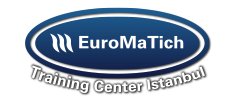Overview:
Introduction:
This seminar provides an understanding of the essential fundamentals of corporate finance, financial strategy, and financial management. Modern practical examples are presented together with the theoretical principles to make the theory come to life. The overriding objective of this seminar is to present many integrated and powerful principles to help develop analytical skills and the decision-making capacity of the participants.
Course Objectives:
At the end of this course the participants will be able to:
- Use and evaluate the various techniques of capital investment appraisal
- Develop appropriate financial strategies
- Relate financial strategy to business strategy
- Effectively manage cash and working capital to reduce costs and improve cash flow
- Appreciate the importance of using the appropriate financial strategy to create shareholder value above market expectations
- Consider how corporate behavior impacts the achievement of corporate objectives and the importance of corporate governance
- Understand financial strategy relating to stages of corporate development and capital structure
- Use and evaluate the various techniques of capital investment appraisal
- Manage cash and working capital to reduce costs and improve cash flow
- Understand how to measure their contribution to the creation of value for the shareholders of the business
- Look at the capital structure and financial strategy in terms of the life cycle of the business, and the weighted average cost of capital (WACC)
Targeted Audience:
- Strategy, Budgeting, and Planning Managers
- Finance and Treasury Professionals
- Capital Investment Managers and Analysts
- Investment Analysts and Advisers
- Employees who want to gain great knowledge to improve their career
Course Outlines:
Unit 1: Financial Strategy and Corporate Behaviour:
- Corporate Objectives and Financial Strategy
- Financial Statements – Analysis and interpretation (Part 1)
- Risk and Company Financing
- Cost of Equity and Debt Capital
- Agency Theory
- Corporate Governance
- Financial Statements regulatory
Unit 2: Financial Strategy and Stages of Corporate Development:
- Financial analysis – Analysis and interpretation (Part 2)
- Strategic Development – Analytical Techniques
- Du Pont Analysis
- The Business Life Cycle
- Capital Structure and Weighted Average Cost of Capital (WACC)
- Dividend Policy
- Cash & Working Capital
- Working capital ratios
- Z scores & Credit Ratings
Unit 3: Costs & Value Management:
- Cost and Value
- Cost Analysis and control
- Strategic approaches to cost reduction and cost management
- Cost Structure and breakeven
- New theories and practices in cost analysis. control and management
- Value management
- Value-based pricing
- The value chain
- Financial strategy and integrated cost/value analysis
Unit 4: Budgeting, Planning, and Business Strategy:
- Strategy models
- Business Strategy related to financial strategy
- Planning and budgeting models
- Linking budgets to business and financial strategy
- Build Managing
- Delegating budgets effectively
- Beyond Budgeting
Unit 5: Capital Investment Decisions:
- Discounted Cash Flow (DCF)
- Evaluating Capital Investment Projects
- Comparison of Alternative Methods of Investment Appraisal
- Capital Budgeting
Unit 6: Restructuring, Reorganisations, Mergers, and Acquisitions:
- Reasons and Justifications for Mergers and Acquisitions
- Share Valuation Models and Financing Acquisitions
- Financial Strategy in Acquisitions and Takeover Bid Defences
- Business Restructuring and Reorganisations


